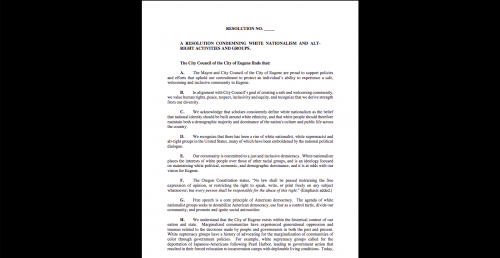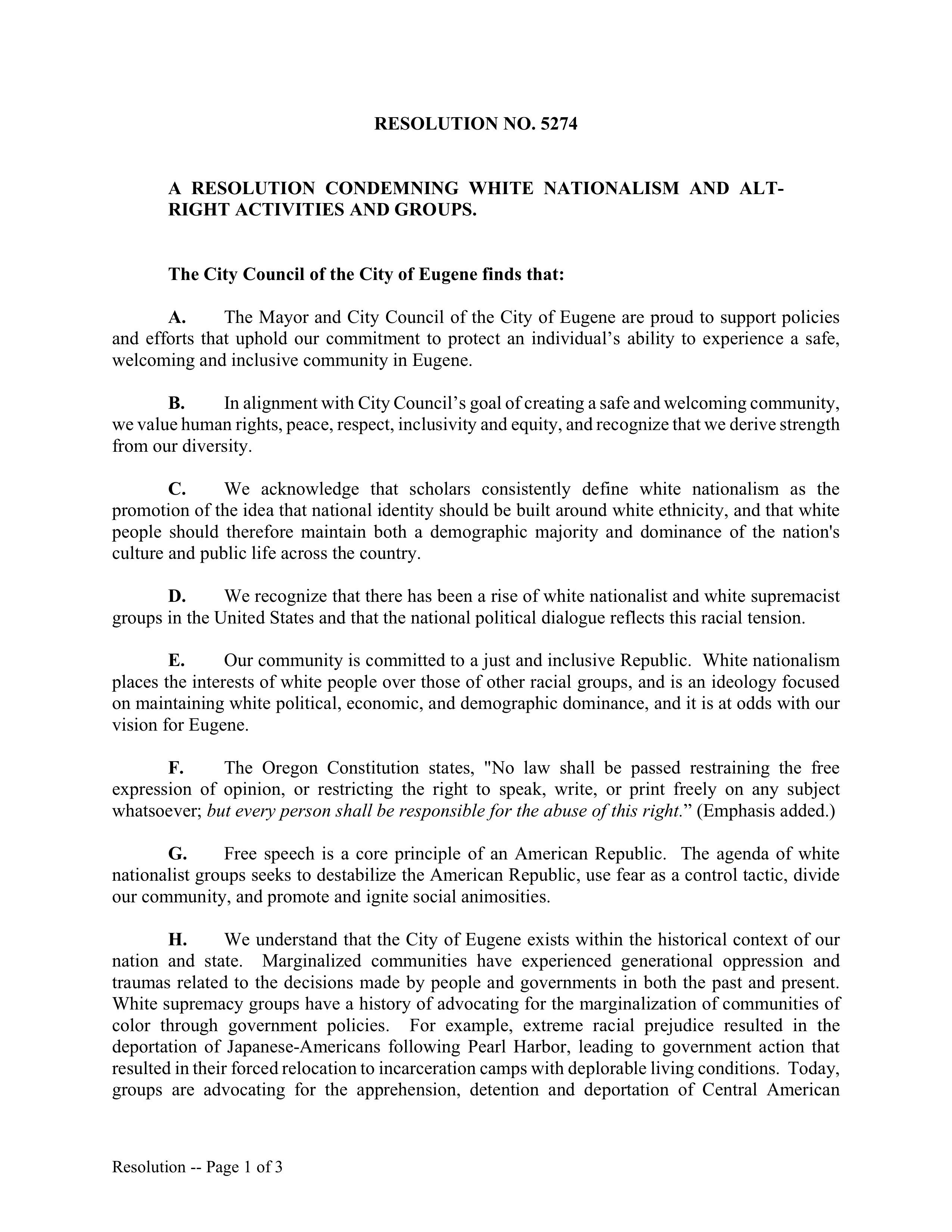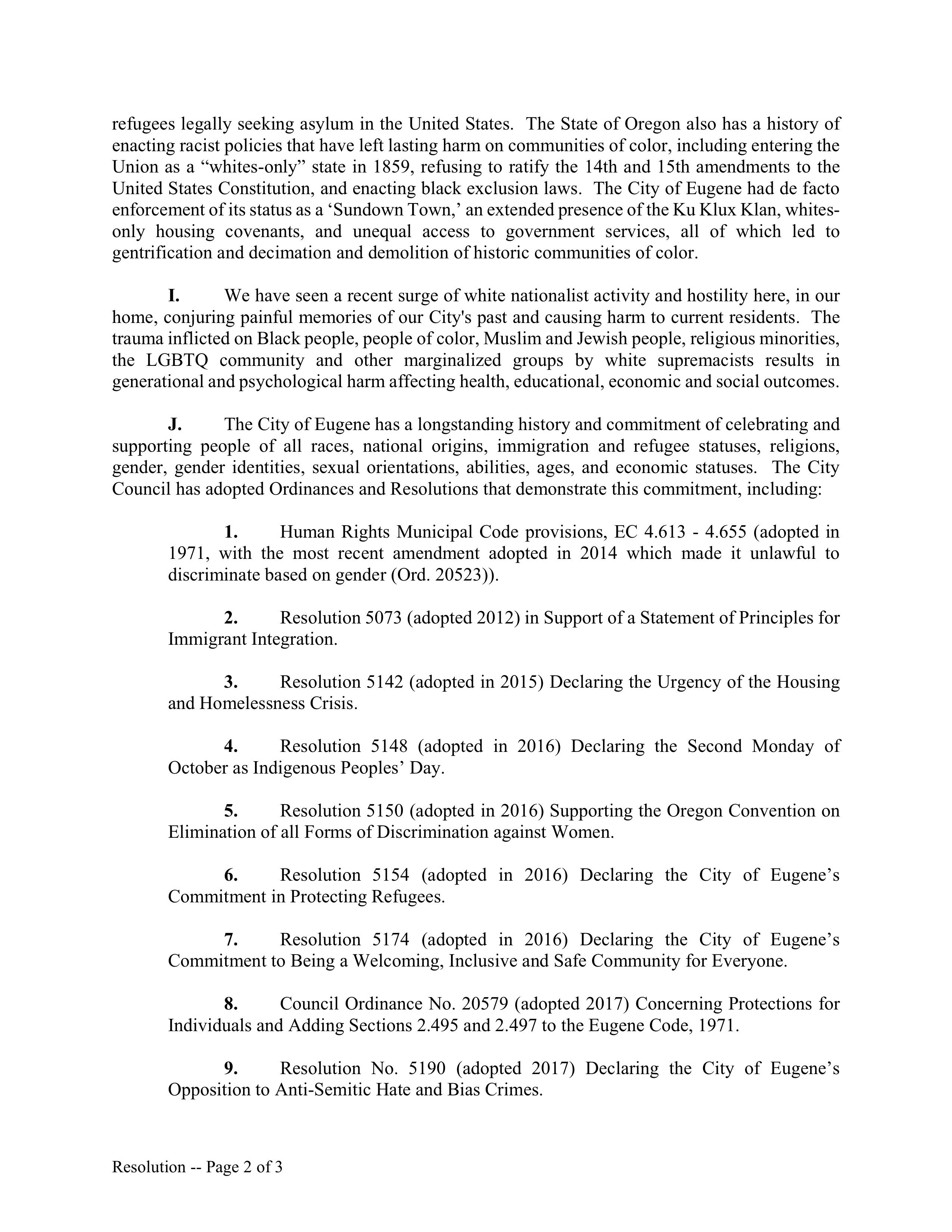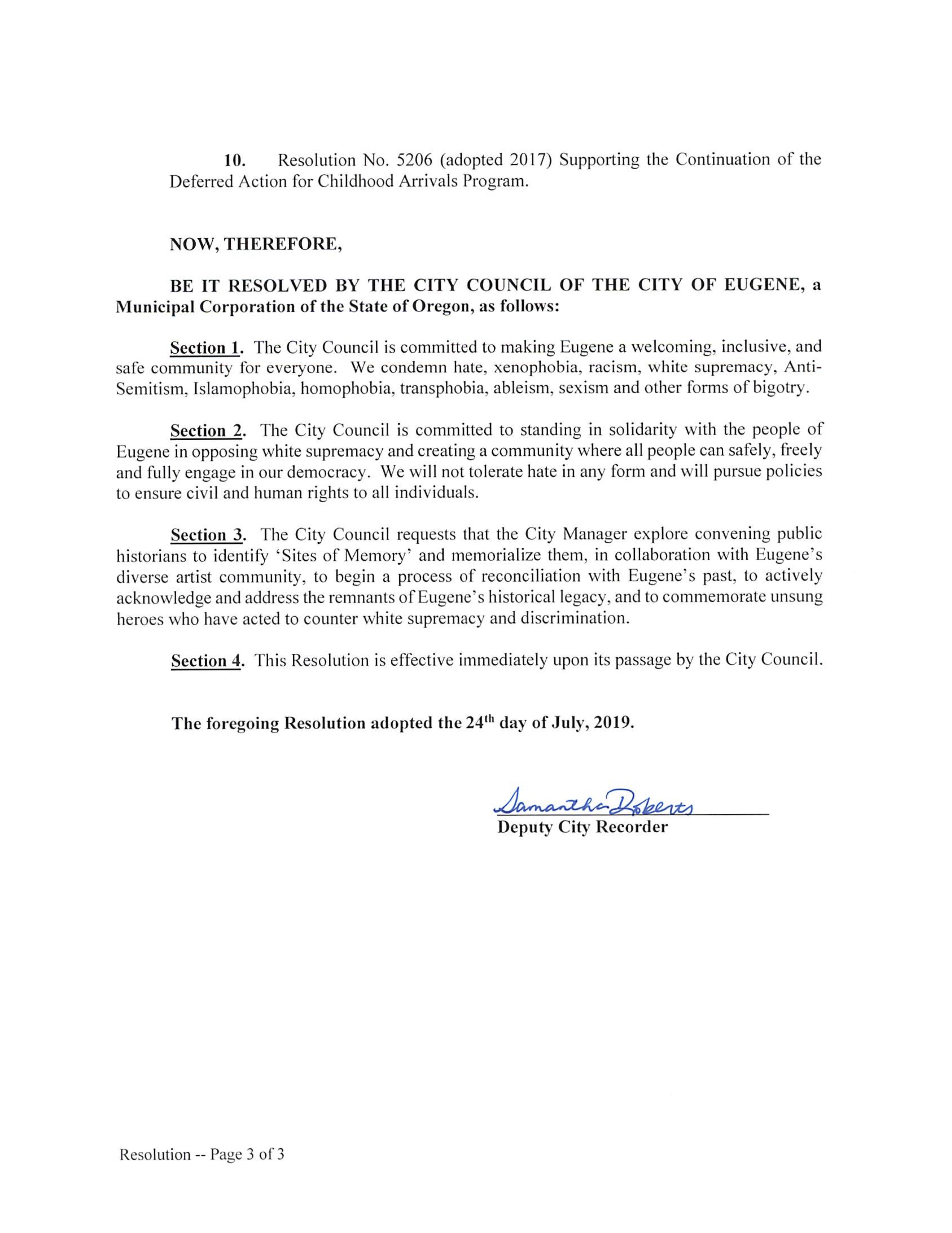
Eugene city councilors on Wednesday, July 24, revisited the resolution condemning white supremacy that narrowly passed during Monday’s session with a 4-3 vote. That vote drew criticism from some community members.
During Monday’s session, Councilor Mike Clark said language in the resolution about “beliefs” concerned him. He asked for that language to be removed. Councilor Emily Semple said she was concerned the resolution, in the form it was presented, would be seen as infringing on free speech.
According to Semple, Clark offered to make amendments to the resolution before Wednesday’s session. During Wednesday’s session, Clark said that some of those amendments included changing “the belief that” to “the promotion of the idea that.” Clark also asked for language that associated the rise alt-right with “the national political dialogue be stricken from the resolution.
Semple, in an interview with Eugene Weekly, says her reasons for wanting to bring the resolution back before the council was because her “no” vote on Monday was due to her concerns about infringing on First Amendment rights. She says she asked for two more days but, since the vote was forced, she didn’t see other choices.
“I’m so grateful we could talk about it again,” she tells EW. “I firmly believe we need to make a strong statement about human rights and promote a safe and welcoming city for everyone.” She adds that it’s important to condemn hateful actions in the community and that it was important to her that the council could vote unanimously.
At the time of this writing, the amended resolution was not available online. The unamended version is available. It reads, in part:
“We have seen a recent surge of white nationalist activity and hostility here, in our home, conjuring painful memories of our city’s past and causing harm to current residents.
“The trauma inflicted on black people, people of color, Muslim and Jewish people, religious minorities, the LGBTQ community and other marginalized groups by white supremacists results in generational and psychological harm affecting health, educational, economic and social outcomes.”


